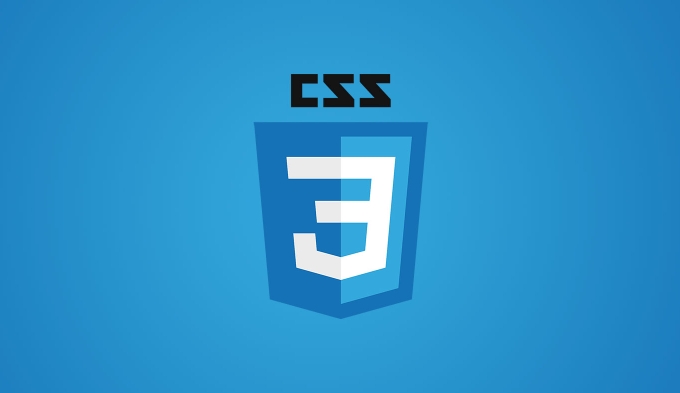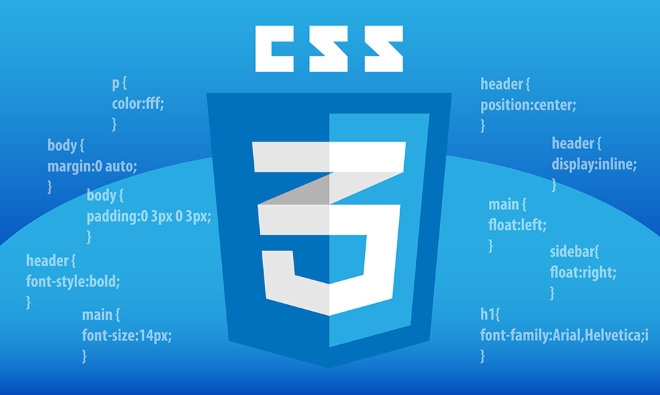The core of creating typewriter effects using CSS is to control the width of the element and hide overflow content through animation, combine overflow: hidden and border-right as the cursor, white-space: nowrap to maintain single lines, and animation to achieve typing and cursor flashing effects; 2. Key customization points include adjusting animation-duration to match the text length, using the steps() function to set the number of steps (usually equal to the number of characters), selecting monolithic font enhancement effects, and customizing the cursor style; 3. It is recommended to set width: fit-content and max-width: 100% in responsive design to adapt to different screens; 4. This method is only applicable to single-line text, animation requires manual parameters, and long text is recommended to use JavaScript instead. This solution requires no JavaScript, is compatible with modern browsers, has good performance and is simple to implement.

Creating a typewriter effect with CSS is a simple and effective way to add a dynamic, retro feel to your text — all without JavaScript. This effect simulates text being typed out character by character, usually with a blinking cursor. Here's how to do it:

1. Use animation with width and overflow
The core idea is to gradually reveal the text by animating the width of an element while hiding the overflow. This gives the illusion that the text is being typed in real time.
HTML:
<h1 class="typewriter">Hello, world!</h1>
CSS:
.typewriter {
/* Set up the container */
overflow: hidden; /* Prevents text from overflowing */
border-right: 0.15em solid black; /* The typewriter cursor */
white-space: nowrap; /* Keeps text on a single line */
margin: 0 auto; /* Center the text */
letter-spacing: 0.15em; /* Optional: adds spacing between characters */
animation:
typing 3.5s steps(30, end) forwards, /* Typing animation */
blink-caret 0.75s step-end infinite; /* Blinking cursor */
}
/* Simulate typing: expand width from 0 to full */
@keyframes typing {
from { width: 0 }
to { width: 100% }
}
/* Blinking cursor animation */
@keyframes blink-caret {
from, to { border-color: transparent }
50% { border-color: black }
}2. Key Points to Customize
- Animation duration : Adjust
3.5sintypingto match the length of your text. Longer text may need longer duration. - Steps() function : The
steps(30, end)breaks the animation into 30 discrete steps — roughly one per character. You can tweak this number based on your text length. - Font and size : The effect works with any font, but monospace fonts (like
Courier) enhance the typewriter feel. - Cursor style : Change
border-rightcolor, width, or even use::afterfor a custom caret.
Optional: Monospace font
.typewriter {
font-family: 'Courier New', monospace;
}3. Make it Responsive (Optional)
If you're using this on different screen sizes, you might want to set a fixed width or use max-width to avoid issues with width: 100% on flexible containers.

.typewriter {
width: fit-content;
max-width: 100%;
animation: typing 3.5s steps(30, end) forwards,
blink-caret 0.75s step-end infinite;
}4. Limitations
- Only works well with single-line text (due to
white-space: nowrap). - Animation timing needs manual adjustment for different text lengths.
- Not ideal for long paragraphs — consider JavaScript for more control.
That's it. With just a few CSS lines, you get a clean, performant typewriter effect. No JavaScript needed, and it works across modern browsers.
The above is the detailed content of How to create a typewriter effect with CSS?. For more information, please follow other related articles on the PHP Chinese website!

Hot AI Tools

Undress AI Tool
Undress images for free

Undresser.AI Undress
AI-powered app for creating realistic nude photos

AI Clothes Remover
Online AI tool for removing clothes from photos.

Clothoff.io
AI clothes remover

Video Face Swap
Swap faces in any video effortlessly with our completely free AI face swap tool!

Hot Article

Hot Tools

Notepad++7.3.1
Easy-to-use and free code editor

SublimeText3 Chinese version
Chinese version, very easy to use

Zend Studio 13.0.1
Powerful PHP integrated development environment

Dreamweaver CS6
Visual web development tools

SublimeText3 Mac version
God-level code editing software (SublimeText3)

Hot Topics
 CSS tutorial for creating loading spinners and animations
Jul 07, 2025 am 12:07 AM
CSS tutorial for creating loading spinners and animations
Jul 07, 2025 am 12:07 AM
There are three ways to create a CSS loading rotator: 1. Use the basic rotator of borders to achieve simple animation through HTML and CSS; 2. Use a custom rotator of multiple points to achieve the jump effect through different delay times; 3. Add a rotator in the button and switch classes through JavaScript to display the loading status. Each approach emphasizes the importance of design details such as color, size, accessibility and performance optimization to enhance the user experience.
 Addressing CSS Browser Compatibility issues and prefixes
Jul 07, 2025 am 01:44 AM
Addressing CSS Browser Compatibility issues and prefixes
Jul 07, 2025 am 01:44 AM
To deal with CSS browser compatibility and prefix issues, you need to understand the differences in browser support and use vendor prefixes reasonably. 1. Understand common problems such as Flexbox and Grid support, position:sticky invalid, and animation performance is different; 2. Check CanIuse confirmation feature support status; 3. Correctly use -webkit-, -moz-, -ms-, -o- and other manufacturer prefixes; 4. It is recommended to use Autoprefixer to automatically add prefixes; 5. Install PostCSS and configure browserslist to specify the target browser; 6. Automatically handle compatibility during construction; 7. Modernizr detection features can be used for old projects; 8. No need to pursue consistency of all browsers,
 What is the difference between display: inline, display: block, and display: inline-block?
Jul 11, 2025 am 03:25 AM
What is the difference between display: inline, display: block, and display: inline-block?
Jul 11, 2025 am 03:25 AM
Themaindifferencesbetweendisplay:inline,block,andinline-blockinHTML/CSSarelayoutbehavior,spaceusage,andstylingcontrol.1.Inlineelementsflowwithtext,don’tstartonnewlines,ignorewidth/height,andonlyapplyhorizontalpadding/margins—idealforinlinetextstyling
 Styling visited links differently with CSS
Jul 11, 2025 am 03:26 AM
Styling visited links differently with CSS
Jul 11, 2025 am 03:26 AM
Setting the style of links you have visited can improve the user experience, especially in content-intensive websites to help users navigate better. 1. Use CSS's: visited pseudo-class to define the style of the visited link, such as color changes; 2. Note that the browser only allows modification of some attributes due to privacy restrictions; 3. The color selection should be coordinated with the overall style to avoid abruptness; 4. The mobile terminal may not display this effect, and it is recommended to combine it with other visual prompts such as icon auxiliary logos.
 Creating custom shapes with css clip-path
Jul 09, 2025 am 01:29 AM
Creating custom shapes with css clip-path
Jul 09, 2025 am 01:29 AM
Use the clip-path attribute of CSS to crop elements into custom shapes, such as triangles, circular notches, polygons, etc., without relying on pictures or SVGs. Its advantages include: 1. Supports a variety of basic shapes such as circle, ellipse, polygon, etc.; 2. Responsive adjustment and adaptable to mobile terminals; 3. Easy to animation, and can be combined with hover or JavaScript to achieve dynamic effects; 4. It does not affect the layout flow, and only crops the display area. Common usages are such as circular clip-path:circle (50pxatcenter) and triangle clip-path:polygon (50%0%, 100 0%, 0 0%). Notice
 What is the CSS Painting API?
Jul 04, 2025 am 02:16 AM
What is the CSS Painting API?
Jul 04, 2025 am 02:16 AM
TheCSSPaintingAPIenablesdynamicimagegenerationinCSSusingJavaScript.1.DeveloperscreateaPaintWorkletclasswithapaint()method.2.TheyregisteritviaregisterPaint().3.ThecustompaintfunctionisthenusedinCSSpropertieslikebackground-image.Thisallowsfordynamicvis
 How to create responsive images using CSS?
Jul 15, 2025 am 01:10 AM
How to create responsive images using CSS?
Jul 15, 2025 am 01:10 AM
To create responsive images using CSS, it can be mainly achieved through the following methods: 1. Use max-width:100% and height:auto to allow the image to adapt to the container width while maintaining the proportion; 2. Use HTML's srcset and sizes attributes to intelligently load the image sources adapted to different screens; 3. Use object-fit and object-position to control image cropping and focus display. Together, these methods ensure that the images are presented clearly and beautifully on different devices.
 What are common CSS browser inconsistencies?
Jul 26, 2025 am 07:04 AM
What are common CSS browser inconsistencies?
Jul 26, 2025 am 07:04 AM
Different browsers have differences in CSS parsing, resulting in inconsistent display effects, mainly including the default style difference, box model calculation method, Flexbox and Grid layout support level, and inconsistent behavior of certain CSS attributes. 1. The default style processing is inconsistent. The solution is to use CSSReset or Normalize.css to unify the initial style; 2. The box model calculation method of the old version of IE is different. It is recommended to use box-sizing:border-box in a unified manner; 3. Flexbox and Grid perform differently in edge cases or in old versions. More tests and use Autoprefixer; 4. Some CSS attribute behaviors are inconsistent. CanIuse must be consulted and downgraded.






